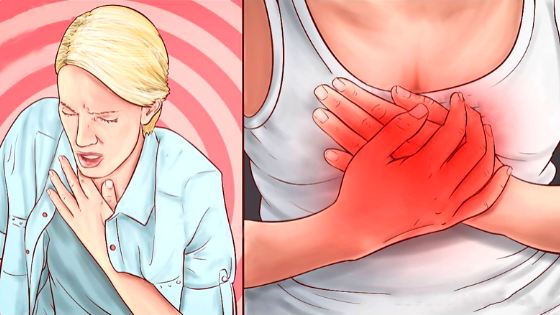
5-Sore Gums And Jaw, Mouth Problems
You may be wondering, how could sore gums possibly mean there’s a problem with my heart? It’s not accurate to say that if you have a gum disease like gingivitis, then you definitely have a heart problem. But doctors have found gum diseases and heart issues are related.
“Your gums are very vascular, meaning they’re full of blood vessels, and, your mouth is full of bacteria,” Dr. Thomas Boyden, Jr. said. “If you disrupt the gum layer even a little bit, you’re going to get bacteria in your bloodstream, which can go anywhere and trigger inflammation throughout the body.” Having open wounds and infected parts of your mouth allows things bad for your heart to flow directly to it, affecting the heart’s overall health.
Pain running from the heart up to around the jaw area is a common sign of a heart attack, especially in women. Jaw pain alone isn’t a strong symptom of a heart attack but rather an issue with your temporomandibular joint (TMJ). When jaw pain is paired with chest pain or other symptoms on the list, that’s when it becomes a concern.
6-Puffy Legs And Feet
Swelling of the legs and feet can be a sign of heart failure. You may notice your lower extremities becoming more swollen when you take your shoes and/or pants off at the end of the day. “You are more likely to notice swelling in your legs and ankles later in the day because gravity increases the amount and pressure of blood in the veins of the lower limbs,” a site dedicated to heart failure pointed out.
Similar to pain in the chest and torso, the swelling of the legs and feet is caused by the improper flow of blood to the heart. Because blood isn’t flowing out as it should, blood also isn’t flowing back in properly, either. This causes blood to clot up or completely stop your heart from working. Read more signs on the next page.





